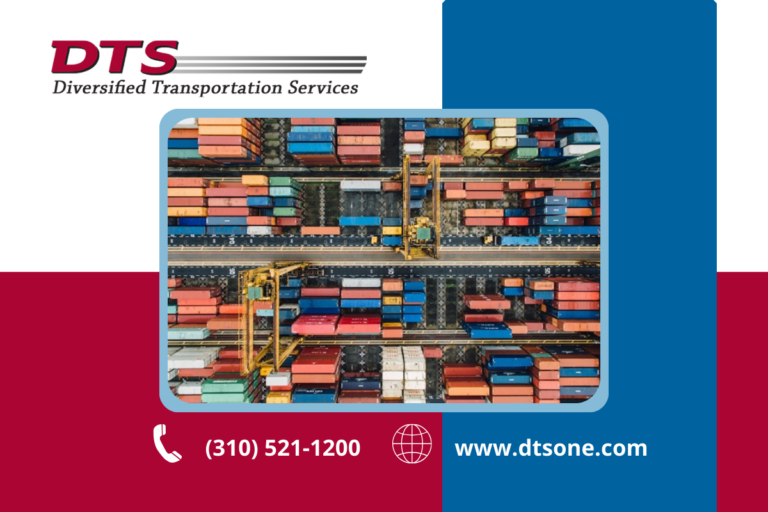
This might seem obvious, but the truth is that selecting the appropriate shipping method is actually a little more intricate than most people think—and knowing those intricacies can make a big difference on your bottom line. That said, it’s not exactly complicated either so taking a moment to understand at least some of the benefits of both FTL and LTL can make a considerable difference.
FTL shipping, while usually more expensive than LTL, is ideal for businesses that have a lot of products to move (up to 40,000 pounds on a single dry van). But despite the cost, it does have its perks, including:
Speed
Because full truckload shipments never switch between trucks, FTL is often faster than LTL. If you have time-sensitive shipments that need to go out, then it’s worth considering FTL freight shipping for this benefit alone.
Security
A single truck doesn’t just mean faster delivery times: it means added security as well. Think about it: if you’re shipping via a single truck that means your shipment isn’t exchanging hands or vehicles. In other words, there’s less opportunity to damage goods between Point A and Point B. It’s practically non-existent. Not to mention, assuming your FTL shipment is full, it will be pretty difficult for anything to move around in the back of a truck. With FTL shipping you can rest assured that your shipment will be protected from handling damages (both on and off the truck), and damages from other freight within the truck.
Great for small and large businesses alike, LTL freight shipping is generally used for smaller shipments. There are several ways you can get LTL shipping to work for you in order to stretch your shipping dollar (even for large shipments). However, it’s just as important to understand where your money is going as it is to understand where your shipment is headed. A few benefits of LTL freight shipping include:
Lower Costs
LTL is cheaper in the same way that carpooling is cheaper. LTL freight shipping is generally more cost-effective than FTL because you’re only paying for a small portion of a trailer or truck. This means, unlike FTL, you aren’t paying for space you aren’t using. When you “pool” with other businesses, each shares a fraction of the total cost. In the end, everyone is “pooling” together to save money. This provides businesses with a lot of creative flexibility, especially when they have to ship to multiple parts of the country. Plus, when you consider many of the additional services you get, including the ability to ship non-commercially, it’s difficult to argue against how cost-effective LTL shipping is.
Environmentally Friendly
LTL freight shipping is also environmentally friendly—and that’s great! Think about it: FTL shipments tend to have plenty of cargo space left in the trailer. Many FTL vehicles on the road aren’t always full. This is wasted space. That means more trips, more greenhouse gas emissions, and a larger carbon footprint. If you’re looking to “go green” LTL just might be for you.
Road
Truckload shipping is the most common transportation option. This is because fast (but not the fastest), reasonably priced, and the easiest to keep track of. If you’re looking for speed and control, then truckload freight shipping is for you.
Air
Air is by far the fastest way to ship, provided of course there are no delays due to inclement weather. This is because airplanes travel directly from Point A to Point B. There are also no stoplights or traffic in the sky… yet. So, if you need to ship across the country quickly, then consider using air freight. However, the speed does come with a pesky tradeoff: cost. After all, air fuel and airline fees are incredibly expensive and the costs, you guessed it, come out of your pocket.
Rail
While rail transport is easily the most cost-effective transit option, it’s also the slowest. If you’re looking to save money and happen to have a shipment with no delivery deadline, then it might be in your best interest to ship via rail.
Intermodal
This form of transport combines two or more means of transportation (e.g., road and rail). The flexibility presents many opportunities to cut costs and can even make shipping goods faster.
Finding the right 3PL isn’t easy and finding the right supply chain partner to take care of your overall logistics needs can be even more difficult.
Thankfully, there’s DTS. As a proud member of the Transportation Intermediaries Association (TIA), DTS adheres to a strict code of conduct to preserve that membership. We make shipping easy. With over 28 years of experience in the freight industry, we have the process down to a science. There’s nothing quite like our Transportation Management System (TMS). Unlike many other TMS interfaces, our TMS is user-friendly. Receiving a quote and scheduling shipments has never been this intuitive, this simple.
Speed doesn’t always mean quality, and a marriage between the two is indeed rare. DTS makes it work. We believe just because something is “cost-effective” doesn’t mean it’s “low-quality.” We find carriers that don’t just meet your demands, we find carriers that do so in a way that stretches your shipping dollar.
Getting the most out of your shipping strategy is essential for every successful business. Don’t let avoidable mistakes damage your finances and efficiency. If you’re unsure about what’s best for your situation, contact DTS. Shipping doesn’t have to be a burden. Trust DTS for a solution that saves you time, money, and a headache.
Whether you're a company looking to improve one facet of your supply chain, your entire supply chain, or simply looking for a transportation and logistics consultation, we can help.